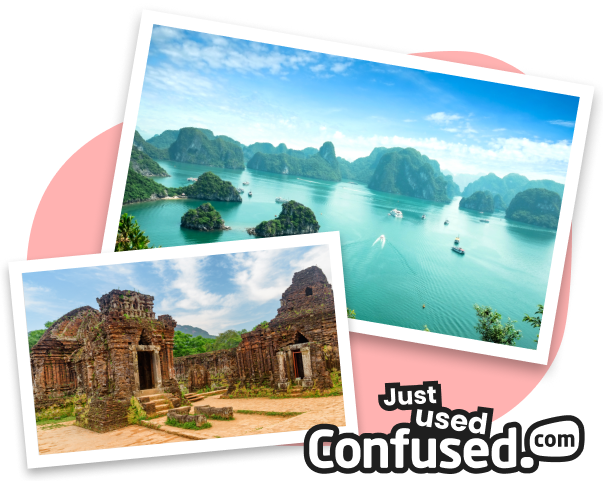Time zones
Vietnam is 7 hours ahead of the UK.
Getting around the country
If you’re planning on seeing more of the country or travel around it, domestic flights are fairly inexpensive. But there’s also overnight buses and trains too. These are generally cheaper, and a good way to avoid eating into your daytime activities.
Respect and be aware of the culture
Visiting Buddhist, Hindu, Taoist and Confucian temples is a must. But dress respectfully when visiting any religious buildings. Cover your upper arms and legs. Also be aware you may need to remove your shoes and any hats before you go in.
There are also a few signs of disrespect in Buddhist culture you need to avoid. You mustn't touch anyone on the head. Also don't point the soles of your feet towards anyone, or towards any Buddhist statues.
Much like many parts of Asia, dignity and respect is important for Vietnamese people. It's crucial to 'save face' and avoid embarrassment or humiliation. Arguments and public outbursts are perceived as offensive, so try to avoid showing anger or frustration - even if things are going wrong while you travel.
Be careful using your camera or camera phone
Always ask permission before taking pictures or videos of people. Not doing so can be seen as intrusive. Also avoid taking pictures of any political demonstrations that might happen. This can get you into trouble with the protesters or authorities.
Avoid drugs
Aside from voiding your travel insurance in the event of a claim, punishments are some of the strictest in the world for drug taking or possession. Many tourists end up in jail, and the death penalty is in force for the most serious drug offences.












